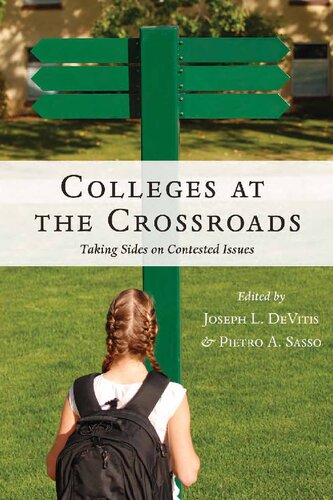

Most ebook files are in PDF format, so you can easily read them using various software such as Foxit Reader or directly on the Google Chrome browser.
Some ebook files are released by publishers in other formats such as .awz, .mobi, .epub, .fb2, etc. You may need to install specific software to read these formats on mobile/PC, such as Calibre.
Please read the tutorial at this link: https://ebookbell.com/faq
We offer FREE conversion to the popular formats you request; however, this may take some time. Therefore, right after payment, please email us, and we will try to provide the service as quickly as possible.
For some exceptional file formats or broken links (if any), please refrain from opening any disputes. Instead, email us first, and we will try to assist within a maximum of 6 hours.
EbookBell Team

4.7
56 reviewsFocusing on crucial issues in higher education, this book challenges readers to go beyond taken-for-granted assumptions about America’s colleges and universities and instead critically examine important questions facing them in today’s troubled world. Each chapter presents divergent perspectives, that is, "pro" and "con" views, in the hope of stimulating reasoned dialogue among students, faculty, administrators, and the public at large. Readers will explore how internal factors in the academic community often interact with external social, economic, and political influences to produce conflictual results. They will see that academe is hardly value-neutral and inevitably political. This book urges them to transcend strident political persuasion and instead engage in the careful analysis needed to make colleges better.
The text provides in-depth appraisal of key topics of controversy: the purposes of higher education, liberal education, academic freedom, political correctness, tenure, shared governance, faculty workload, admissions tests, student learning, Greek life, the worth of college, equity and social justice, athletics, student entitlement, technology and distance instruction, and college amenities. The book will appeal to students, faculty, staff, and all those interested in the future of higher education. It is especially useful for courses in contemporary issues in higher education, foundations of higher education, higher education and society, college student development, and the organization and administration of higher education.